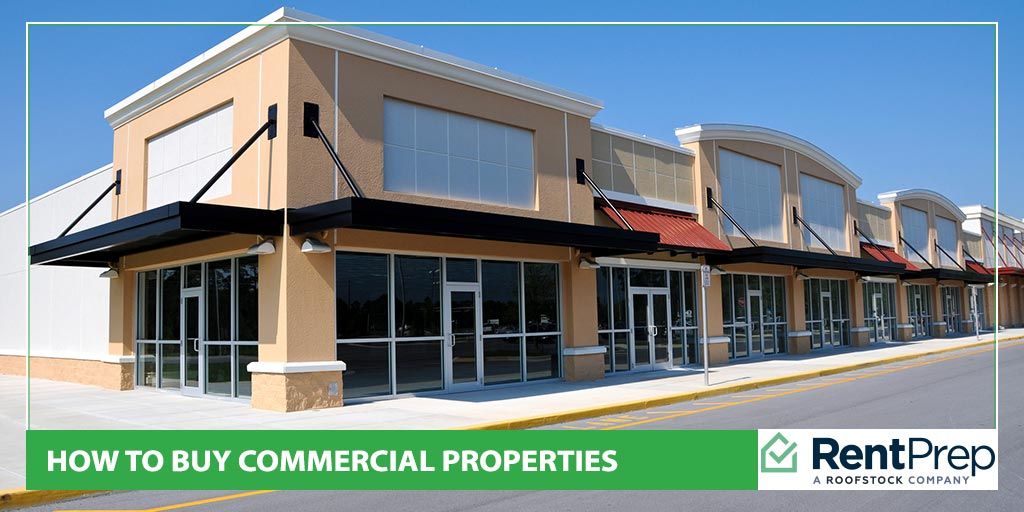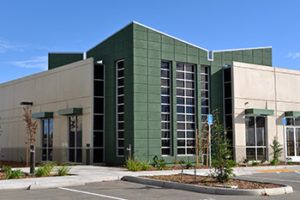
Buying a business property for your business or investment needs is a complex process. In either case, finding a property that fits and fulfills your needs requires the coordination of many moving parts. It can be overwhelming when you don’t yet know how to buy commercial properties.
There are also substantial potential profits in buying commercial properties. On average, returns are higher than in residential real estate. Buying a business property might be the next investment opportunity that you’ve been looking for.
But how do you buy a commercial property for the first time? Today, learn with RentPrep about purchasing a commercial property, commercial investing, and more.
A Table Of Contents On Purchasing Commercial Property
Ready for returns that you can’t dream of with a residential property? It’s time to decide if commercial investing could be more up your lane. Start with the basics: learn how to purchase a commercial property with us today:
- What Is Considered Commercial Real Estate?
- How To Buy Commercial Properties: A Step-By-Step Guide
- How To Buy Commercial Properties FAQs
- Buying A Business Property: Start Your Next Steps Now
What Is Considered Commercial Real Estate?

Commercial real estate (CRE) is a large and varied industry. It includes spaces used for business purposes and properties such as office space and industrial buildings.
Apartment buildings that contain more than four units are also considered commercial properties. Keep in mind that the lease between the unit owner and the unit tenant will still be a residential lease, while the lease between the property owner and the building owner will be a commercial agreement.
Types Of Properties
There are five main types of commercial properties on the market today:
- Multifamily residential properties (i.e., apartment buildings, duplexes)
- Office spaces (i.e., high rises, medical offices)
- Retail spaces (i.e., stores, services)
- Industrial properties (i.e., warehouses, packing facilities)
- Hospitality properties (i.e., hotels, short-term rentals)
You can invest in multiple types of commercial properties or focus on a single type..
How To Buy Commercial Properties: A Step-By-Step Guide
Now that you know more about commercial properties and what qualifies as commercial, it’s time to get into buying commercial real estate. This type of real estate investing is confusing for the inexperienced, so don’t get overwhelmed if you don’t know much yet. We’re here to help.
#1: Business Development, Investing, And More: Why Are You Buying?
Why are you getting into commercial real estate? Why do you want to buy a commercial property? What are your investment goals in this sector?
Bank of America data show that commercial properties more than double the average returns on residential property investments. This motivates many to get into commercial real estate, but there needs to be more to your business plan.
It’s essential to develop your business ideas before you buy any property. Knowing your goals upfront helps you make better decisions throughout the buying process. Before moving forward, take time to determine, research, and develop your ideas.
There are several types of commercial property investment used by investors and landlords:
- Land banking: purchasing land to tie money to a fixed asset
- Development: purchasing raw land to develop and grow value
- Flip: purchasing property, renovating it, and reselling or renting for a profit
- Wholesaling: purchasing property at below-market value to sell to a buyer
- BRRRR: buying, rehabbing, renting, refinancing, and repeating
- Passive investing: investing in real estate through more active investors
- Owner-occupied: purchasing a multi-unit commercial property and utilizing some of the space for your business
Investors often start by purchasing commercial property for personal use. The purchased property is used to run their business and becomes owner-occupied. Owning this property starts building equity as you plan future purchases, and you can utilize specific tax advantages in the process. You can begin renting those out while continuing to use the building if it has multiple units.
Investors often start their commercial property business with this type of project because it sets them up for future success as they gain experience.
#2: How Will You Fund The Purchase?
Next, determine what lender you will use for your property purchase. Compare lenders as you work to secure financing. You’ll need to ensure you have a good credit score to secure a reasonable rate, and you’ll want to carefully read over terms on fees and penalties with all lenders.
The most popular loan types used by commercial investors are:
- Permanent loans
- FHA loans
- SBA loans
- Bridge loans
- Hard money loans
To secure business loans, you will need to provide a variety of documentation that covers your financial background and assets on hand, and touches on your plans for the property. These plans show the pros and cons of the investment so the lender can fully grasp any risks they are taking in the process.
#3: Who Will Help You?
Unlike residential investment, which can sometimes be managed as a solo entrepreneur, most commercial investors have a team they work with. Finding people who can help you accomplish your goals is essential even if these relationships are not contractual.
The types of individuals who will be essential to finding success as a commercial investor and landlord include:
- Real estate agent, preferably one with a degree in business or finance
- Attorney familiar with contract law and commercial leases
- Accountant well-versed in commercial account management
- Mortgage broker with good lender connections
- Reliable contractor specializing in commercial properties
- Property manager to assist with management, rent collection, and other essentials tasks
#4: What Do The Numbers Look Like?

Analyzing every property that you consider investing in is essential. The numbers matter and you need to see the property value through those numbers.
As you research industry trends in your area, zoning laws, property design, growth trends, and more, you will become more familiar with what success in the commercial rental field looks like.
Every property needs to be evaluated and compared to similar properties. A commercial contract should accompany you to analyze the property and the cost of any necessary repair work. Whether you are building from scratch or improving, having these figures will help you make better investment choices.
Consider the cost of investment, potential income, number of units, the ratio of growth to cost, and industry trends when running the number of potential investment properties.
#5: What Type Of Deal Will You Offer?
Making an offer on your first commercial property will be stressful, and that’s okay! Practice makes perfect on this front, and all you can do is try. Working with an experienced attorney, broker, and real estate agent will help the process go smoothly.
To offer to purchase a property, you typically write a letter of intent and provide specific terms through a purchase and sale agreement. Once your team reviews your copy, it will be submitted to the seller. After negotiation and readjustment, the seller may accept and finalize the sale.
#6: Keep Learning
No matter how you approach buying commercial properties, it’s vital to keep educating yourself. Stay up-to-date on the latest industry news, guides for landlords like you, and other exciting investment information with our newsletter and resources at RentPrep.
We’ve created these resources to educate the community and facilitate the spread of valuable information for landlords. The rental industry is an ever-evolving market, and we know it can be hard to keep up. With our resources and your ingenuity, you’ll be able to stay on top of your game and manage exponential growth.
How To Buy Commercial Properties FAQs
While our above guide covers many key points of buying a commercial property, there’s always more to learn. Here are answers to some of the most frequently asked questions:
How do I know more about commercial property investing?
The best way to learn anything is through experience, but that’s not to say that you should jump straight into commercial investing without knowing anything about it. You’re already on the right track by reading this complete guide, which gives you an ideal outline of the process of buying commercial property.
Keep researching, utilizing the following types of resources to ensure you find the most important information:
- Listen to real estate investment podcasts
- Read real estate books written by successful investors
- Watch YouTube videos about commercial investing
- Meet other investors, online or in your area, and discuss the work
- Find investor groups
- Try working at an investment group to familiarize yourself with the process
These are just some of the easiest ways to access more information about commercial investing and what it looks like. Once you feel confident that you have an excellent foundational knowledge of the commercial industry, moving forward with viewing properties, underwriting deals, and then actually purchasing a property is the best way to keep learning.
Remember, if you have a good team consisting of a broker, agent, attorney, and accountant on your side, they’ll be able to keep you on the right path as you proceed with your first few deals. Every deal will make you more skilled, which will be the path to generating expertise in the commercial rental industry.
How can I calculate the value of potential commercial deals?
Calculating the value of a commercial property is a massive part of finding success in this type of investing. It’s also one of the most challenging things to do, and many investors spend years working on discovering the correct equation for their investment preferences.
Many investors find or develop a spreadsheet where they can input specific data (such as the property value and predicted rent) to determine if it makes sense as an investment. By inputting particular numbers in this living document, you can quickly discover if a property is worth considering.
It’s also helpful to have a quick and easy formula to evaluate potential properties on the fly. Again, this should be a personalized formula for your financial needs and profit preferences. Some investors compare the asking price per square foot to the potential rental price per square foot.
What is underwriting in commercial real estate?
Underwriters are financial industry professionals who analyze your financial assets to determine whether or not they’re willing to take on the risk of giving you a loan.
Practicing underwriting will help you to determine whether or not an investment makes sense. Underwriting for commercial properties involves reviewing property pros and cons, which allows investors to decide if properties are worth the risk even before a lender does.
If you know your investment criteria, taking time to underwrite deals regularly will help you figure out what types of properties are suitable investments to maintain your preferred profit margins.
Buying A Business Property: Start Your Next Steps Now
Even if you’re feeling unsure at first, you now have the information to consider buying a commercial property and becoming a commercial investor.
While it might take some time to get to the actual purchase point, you can get going right now:
- Read more about each type of commercial investment property and strategy to determine what style suits your investment interests.
- Contact your future team. Meet attorneys, agents, property managers, bankers, and other individuals that will be essential to your process.
- Study underwriting, investment strategy, and your local commercial market.
Starting with these three steps will ensure you know what is necessary to make intelligent decisions from day one of buying commercial properties. As your information bank grows, you’ll be ready to purchase sooner than you might imagine.

